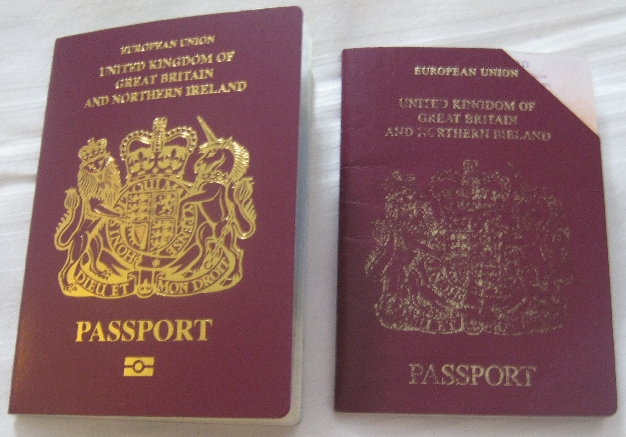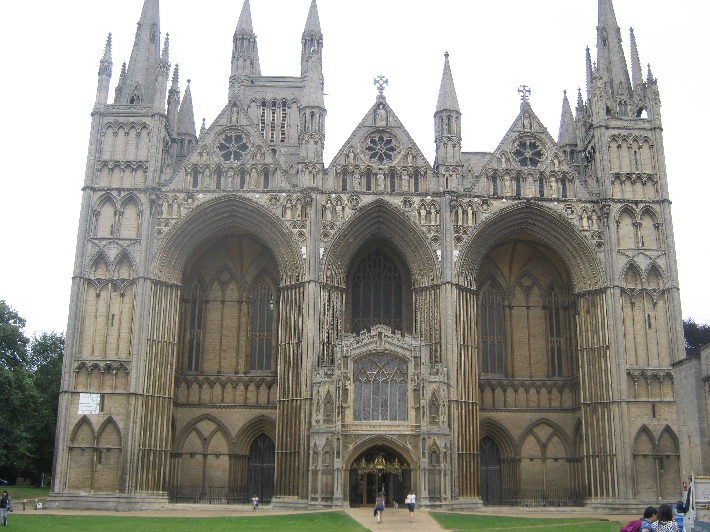
On Saturday 30th July 2016, I had the privilege of officiating at the marriage of my son Phillip, to my new daughter-in-law, Lisa. The wedding took place at the Parish Church of St. Jude, Mapperley, Nottingham and was followed by a reception in the neighbouring Church Hall.
Phillip and Lisa announced their engagement in December last year, whilst on a short trip to Lisbon, Portugal. In early January 2016, Phillip wrote to me saying that they planned to be married in July this year and would like me to officiate, if I would be willing to do so. My response was that if that was what both of them wanted, then I would be more than happy to officiate and would regard doing so as a great privilege.
Fortunately, having bought a house together late last year in Mapperley, Nottingham, they discovered that their local Parish Church of St. Jude, was just five minutes walk away from their new home. They went to see the Vicar, Rev’d John Allister, who agreed to them being married at his Church as they resided in his parish. He was also perfectly happy for me to officiate, subject to the agreement of his bishop.
At John’s suggestion, I wrote to the Chaplain of the Bishop of Southwell and Nottingham, seeking her boss’s agreement to me officiating. After she had made contact with my diocesan bishop, twenty-four hours later, I received an email with a delightful typo. It gave me permission to conduct ‘the weeding’. I did reply saying I was surprised that my gardening skills had become so well-known 🙂 In turn, John replied saying that there was plenty to do in the Vicarage garden!

I have to say that I found conducting the wedding of my son quite a moving experience. I was therefore very pleased that the ceremony did have its lighter moments. The first of these was when I said the famous words, ‘First, I am required to ask anyone present who knows a reason why these persons may not lawfully marry, to declare it now’. Lisa turned her head and gave the congregation such a look, that laughter ensued.

Then I had to deal with an over enthusiastic bridegroom. ‘Phillip, will you take Lisa to be your wife?’, I asked. ‘I will’, he immediately replied, before I could ask the rest of the question – ‘Will you love her, comfort her, honour and protect her, and, forsaking all others, be faithful to her as long as you both shall live?’ I did then get a second ‘I will’, having completed the question.
After Phillip and Lisa had made their marriage vows to each other, the plan was for my grandson/Phillip’s nephew, Finley, to bring me the rings. But having taken one step forward, he then dropped the box containing the rings, straight onto the floor! Fortunately, Adam, the best man, rescued the box and brought me the rings for them to be blessed and then exchanged.
At the end of the marriage service, I experienced an interesting change of role. Having pronounced the blessing of the whole congregation and sent the new Mr and Mrs Yates off down the aisle, I then had to also be the father of the groom, and escort Lisa’s mother Kathleen, out of the Church.


After photographs and initial celebratory drinks in the Church grounds, we sat down in the Church Hall for our celebratory meal of fish and chips with mushy peas, all part of the overarching seaside theme of the reception and the decoration of the hall.
 |
 |
As is traditional, the evening celebration began with the happy couple having their first dance together. My thanks to Kathy and Claire Garner, respectively the mother and wife of the best man, for giving me permission to use a couple of their photographs, to illustrate this post.






